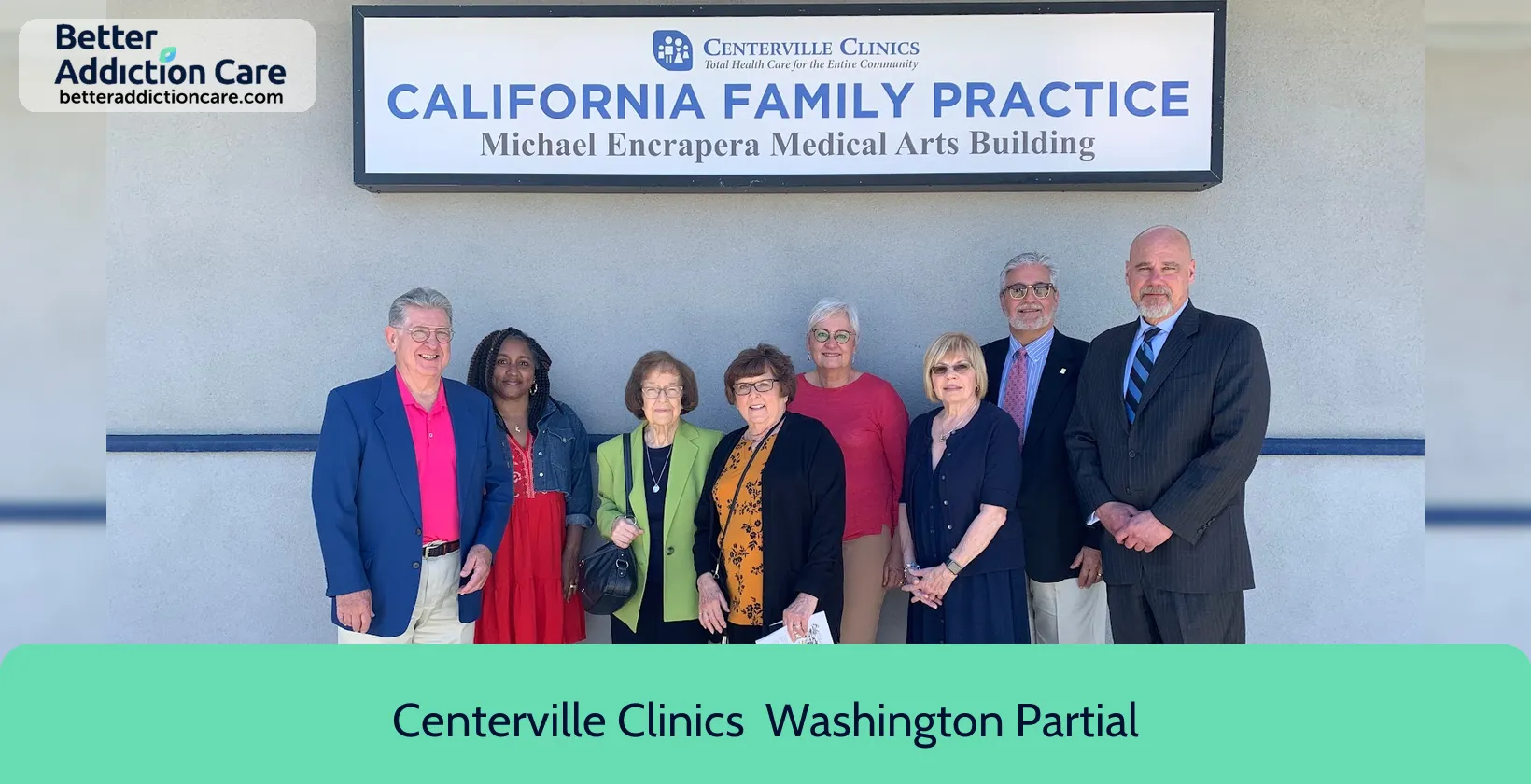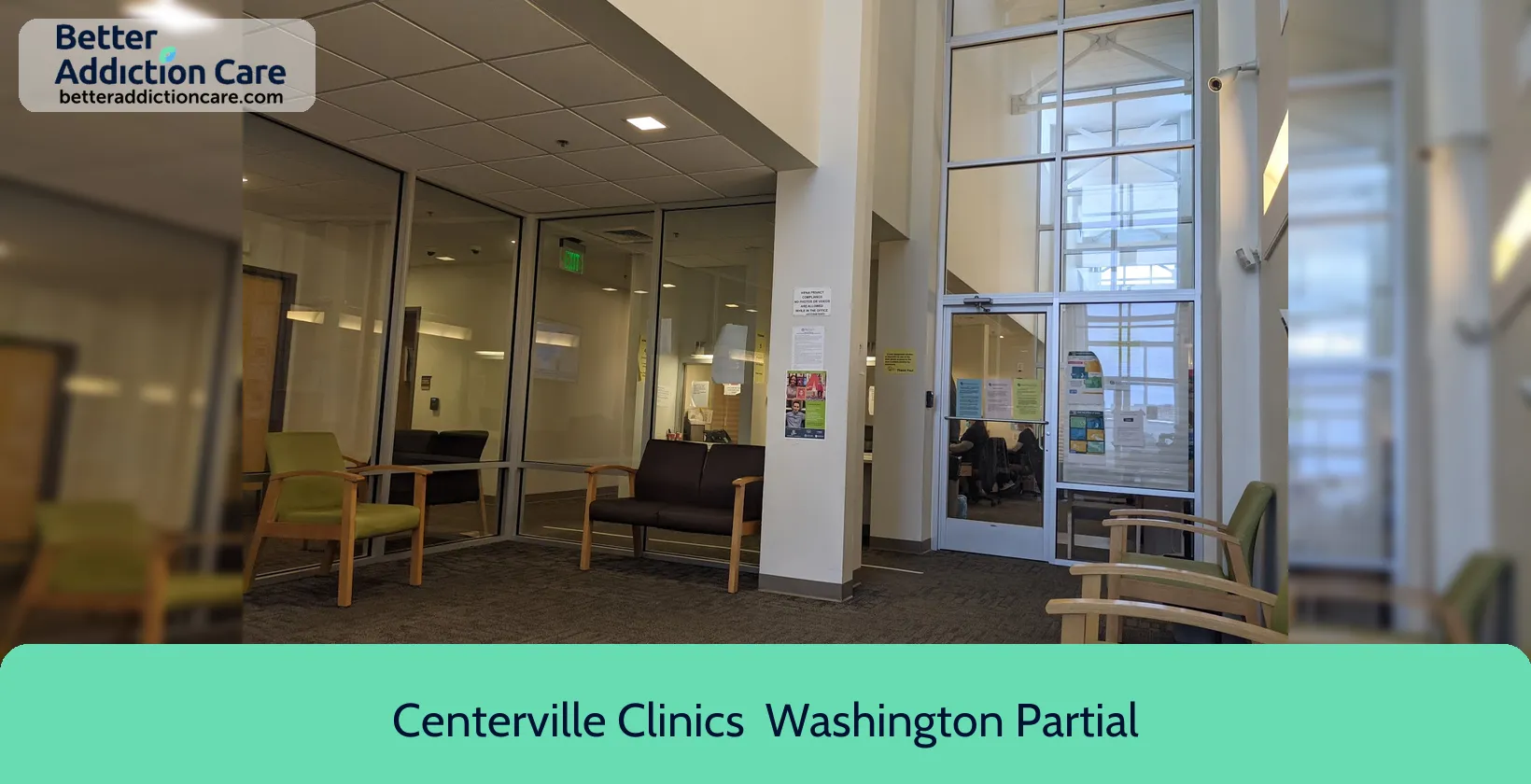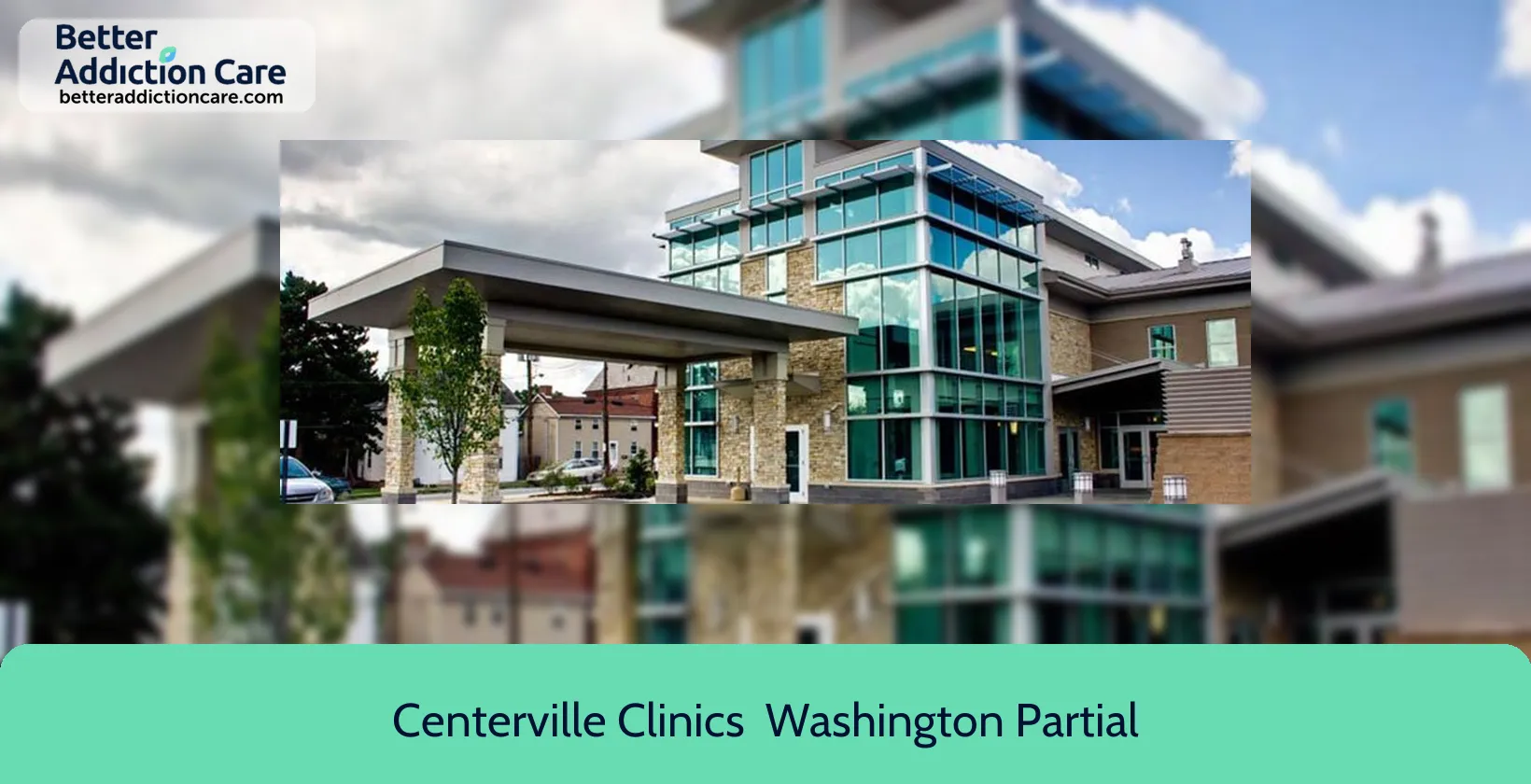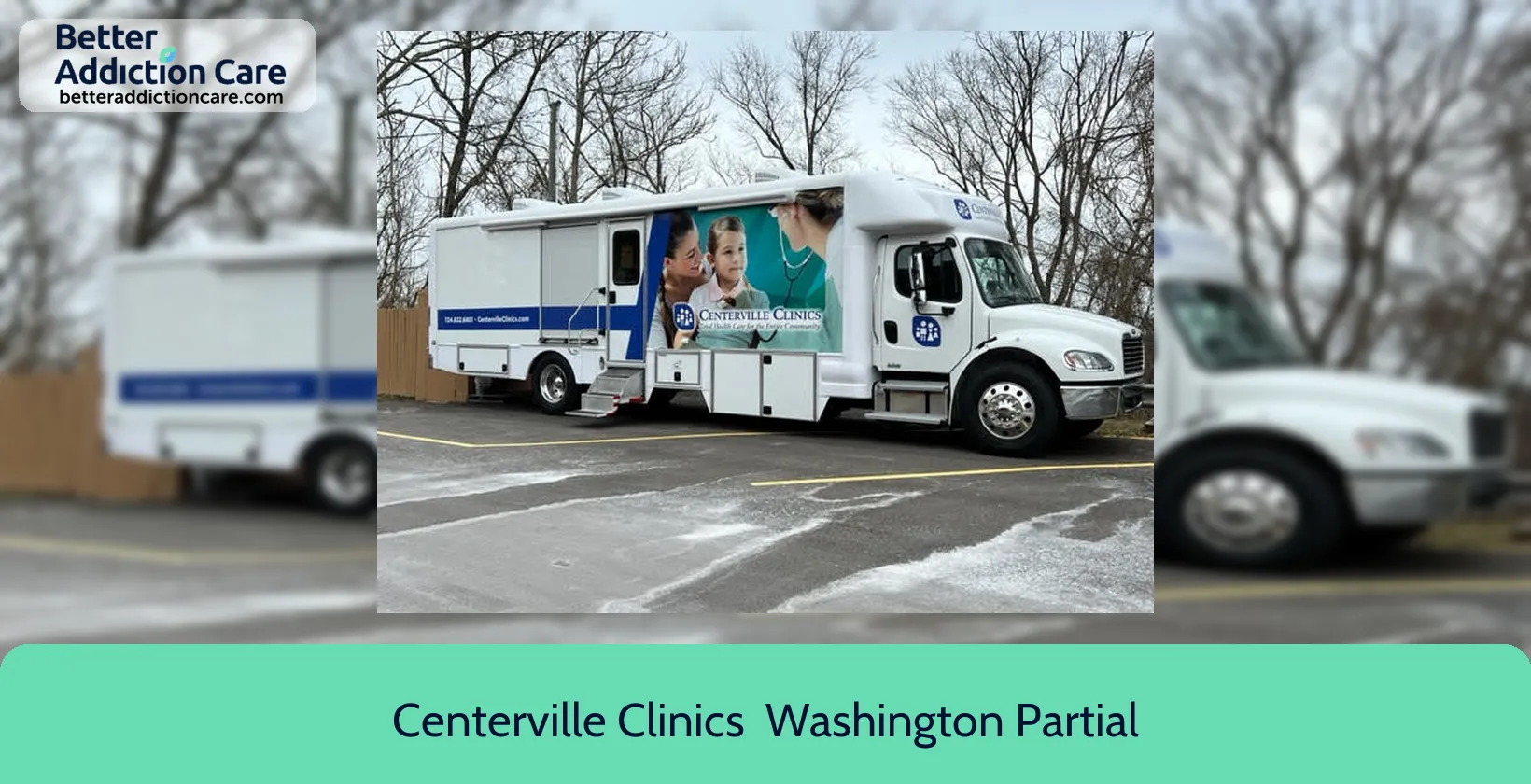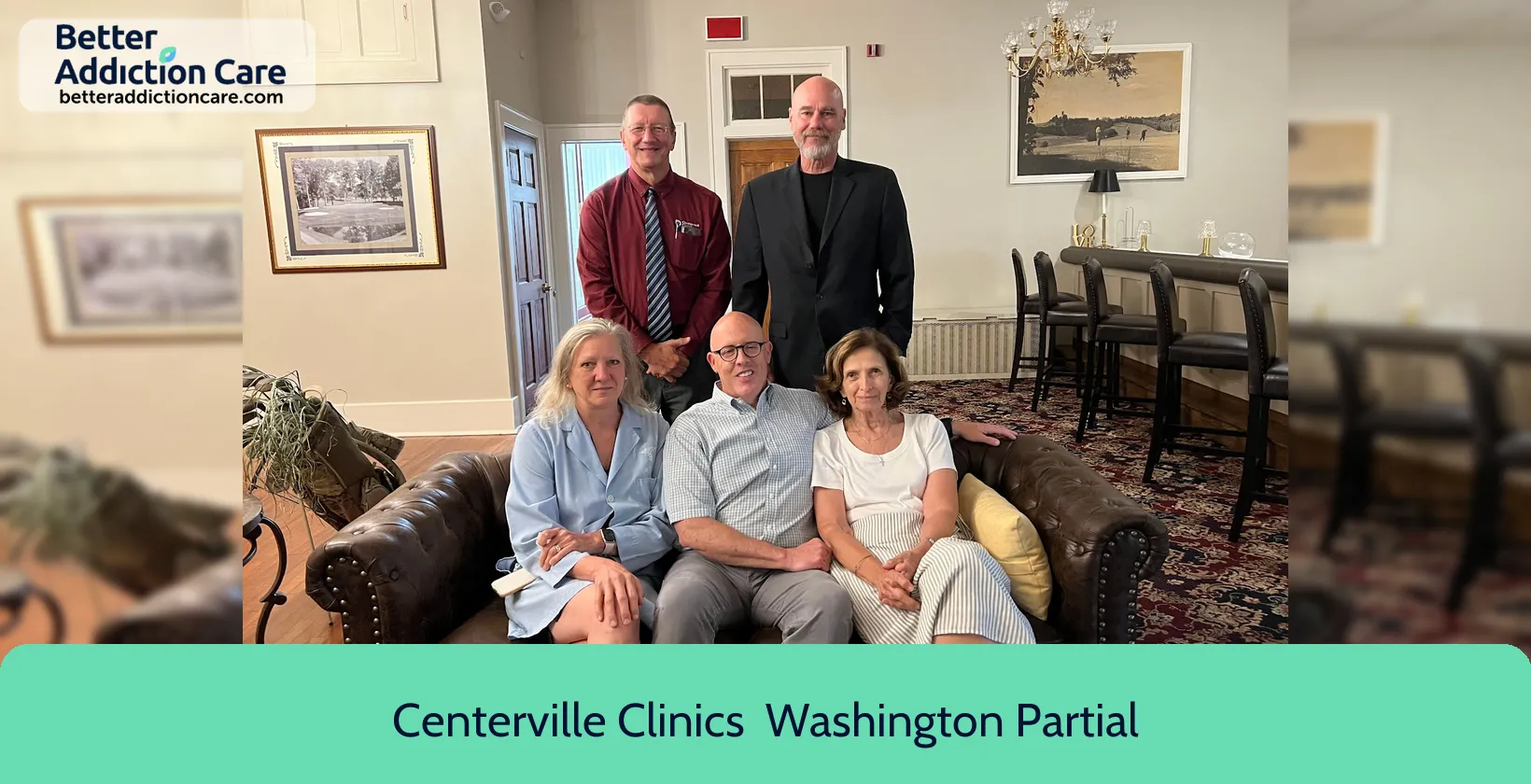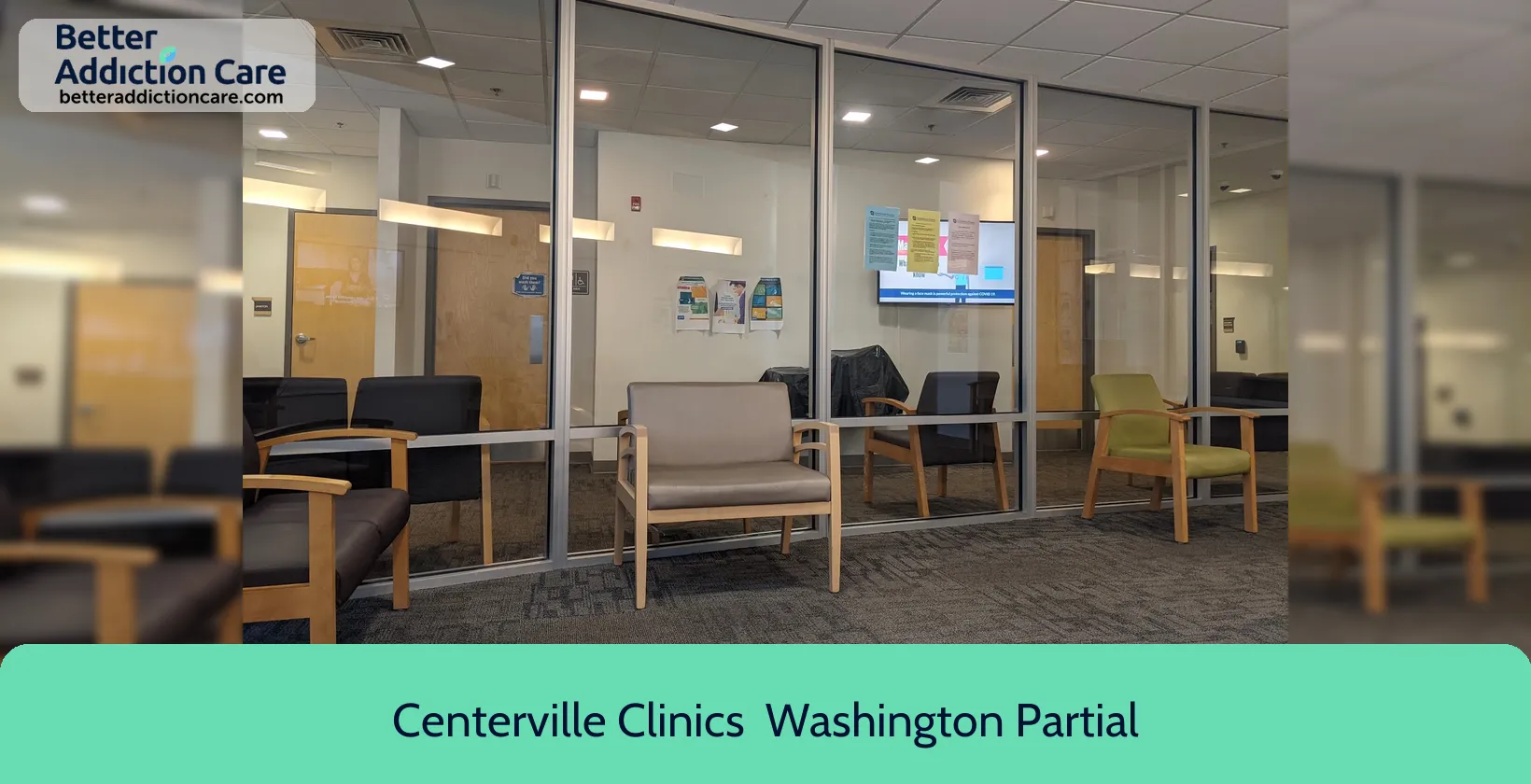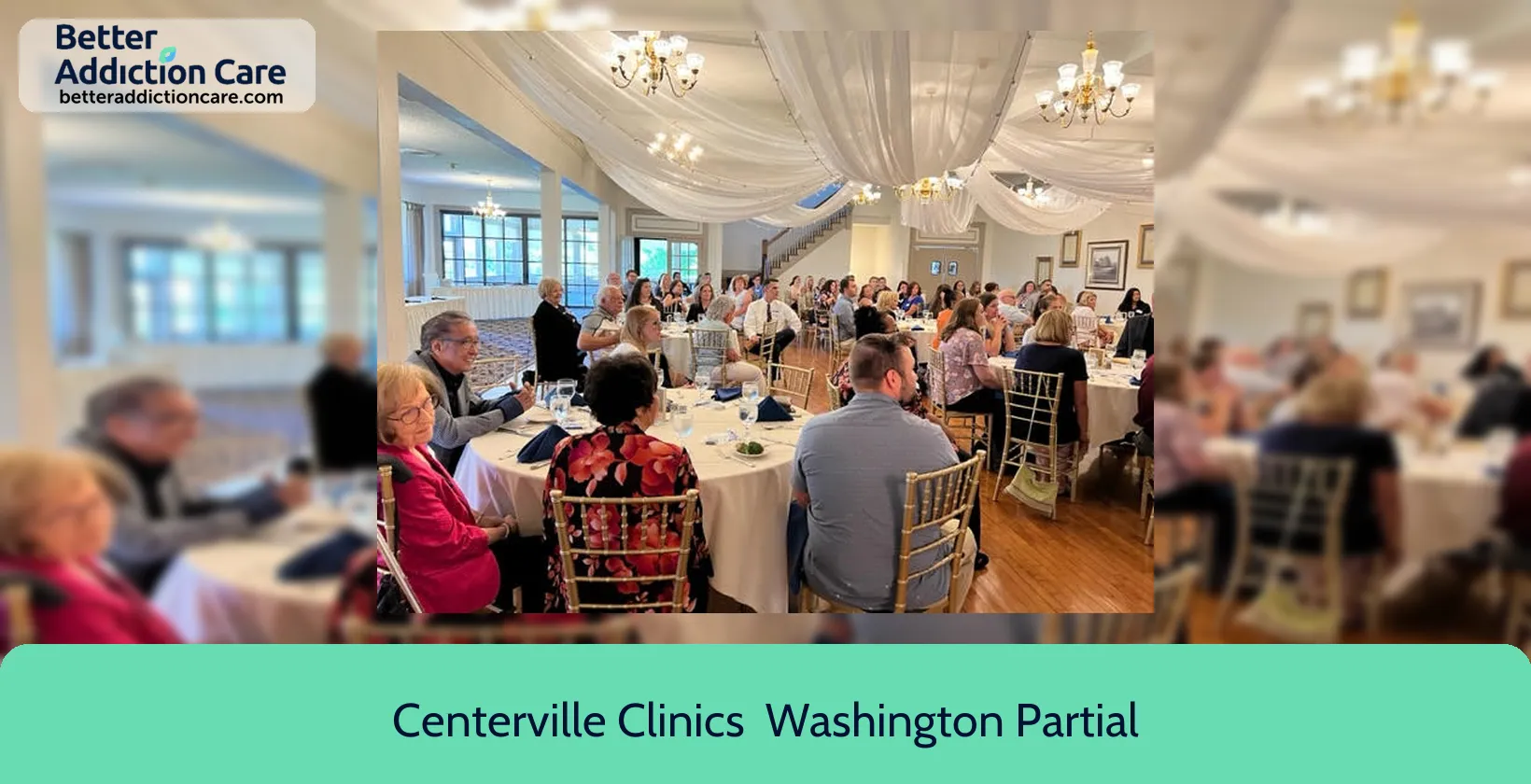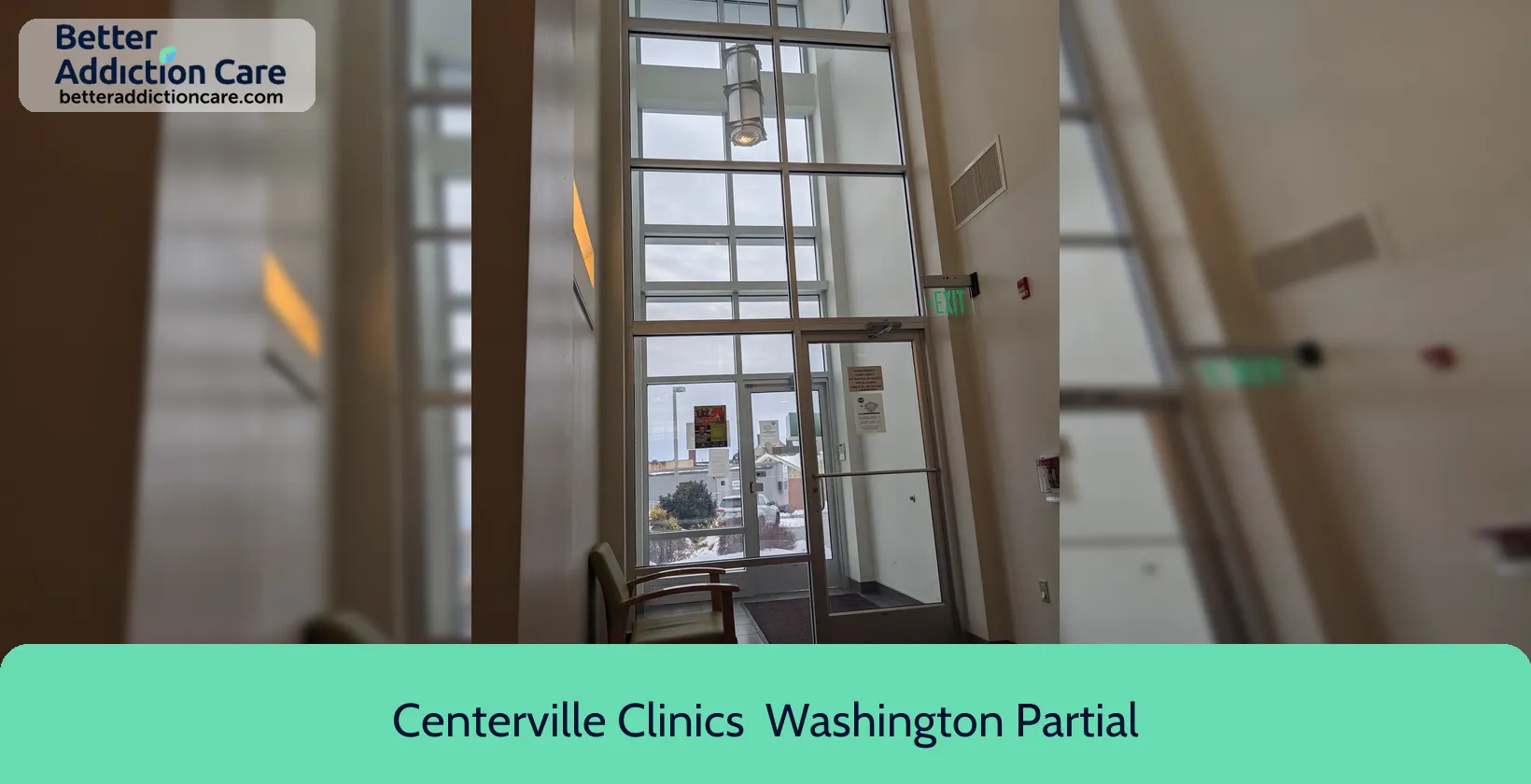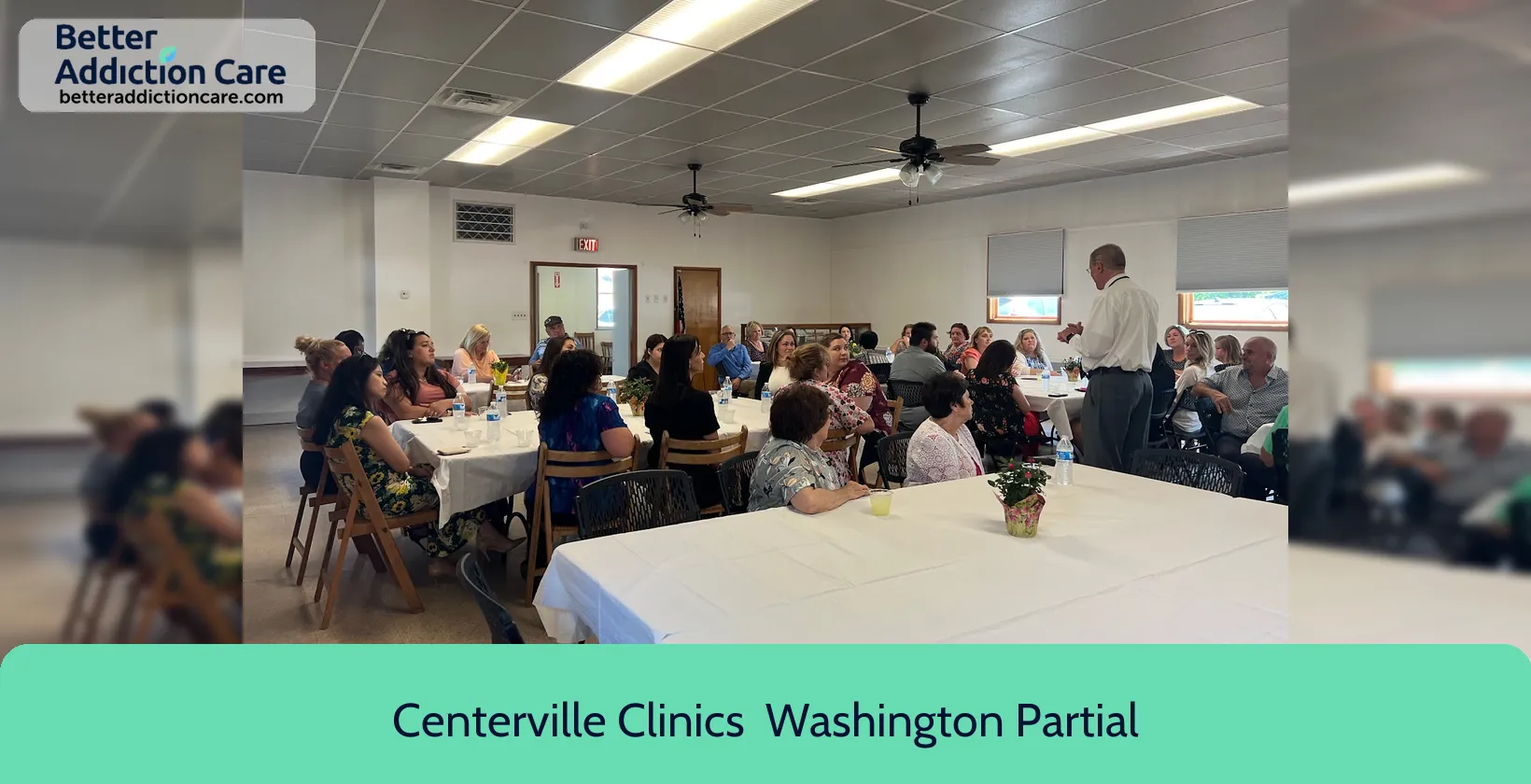Centerville Clinics - Washington Partial Hospitalization Program
Overview
Centerville Clinics - Washington Partial Hospitalization Program is a mental health treatment center for people seeking treatment near Washington County. As part of their treatment modalities for recovery, Centerville Clinics - Washington Partial Hospitalization Program provides cognitive behavioral therapy, dialectical behavior therapy, and telemedicine/telehealth therapy during treatment. Centerville Clinics - Washington Partial Hospitalization Program is located in Washington, Pennsylvania, accepting cash or self-payment for treatment.
Centerville Clinics - Washington Partial Hospitalization Program at a Glance
Payment Options
- Cash or self-payment
- Medicaid
- Medicare
- Private health insurance
- Federal military insurance (e.g., TRICARE)
Assessments
- Comprehensive mental health assessment
- Comprehensive substance use assessment
Age Groups
- Seniors or older adults
- Young adults
- Children/adolescents
- Adults
- Seniors
Ancillary Services
- Intensive case management
- Court-ordered outpatient treatment
- Diet and exercise counseling
- Education services
- Family psychoeducation
Highlights About Centerville Clinics - Washington Partial Hospitalization Program
6.59/10
With an overall rating of 6.59/10, this facility has following balanced range of services. Alcohol Rehabilitation: 8.00/10, Drug Rehab and Detox: 6.00/10, Insurance and Payments: 6.00/10, Treatment Options: 6.36/10.-
Alcohol Rehabilitation 8.00
-
Treatment Options 6.36
-
Drug Rehab and Detox 6.00
-
Insurance and Payments 6.00
Accreditations
Federally Qualified Health Center:
Federally Qualified Health Center (FQHC) accreditation is a process of evaluation and recognition by the federal government for community health centers that provide comprehensive and accessible healthcare services to underserved populations. FQHC accreditation is essential for centers to receive federal funding and to ensure that they meet standards for quality, patient-centered care.
Treatment At Centerville Clinics - Washington Partial Hospitalization Program
Treatment Conditions
- Mental health treatment
- Substance use treatment
- Co-occurring Disorders
Care Levels
- Partial Hospitalization Program
- Outpatient
Treatment Modalities
- Cognitive behavioral therapy
- Dialectical behavior therapy
- Telemedicine/telehealth therapy
- Cognitive remediation therapy
Ancillary Services
Special Programs
- Clients with co-occurring mental and substance use disorders
- Veterans
- Active duty military
- Members of military families
- Criminal justice (other than DUI/DWI)/Forensic clients
Common Questions About Centerville Clinics - Washington Partial Hospitalization Program
Contact Information
Read our Most Recent Article About Drug Addiction
DISCLAIMER: The facility name, logo and brand are the property and registered trademarks of Centerville Clinics - Washington Partial Hospitalization Program, and are being used for identification and informational purposes only. Use of these names, logos and brands shall not imply endorsement. BetterAddictionCare.com is not affiliated with or sponsored by Centerville Clinics - Washington Partial Hospitalization Program.
